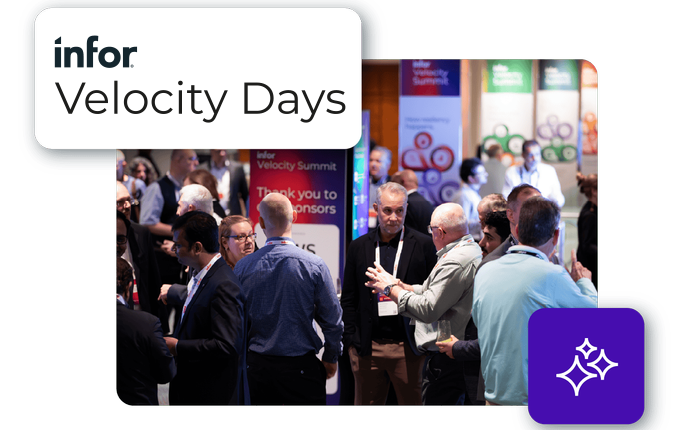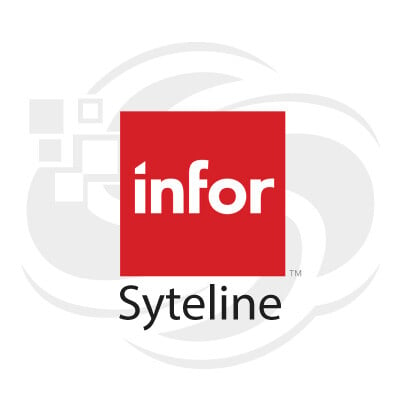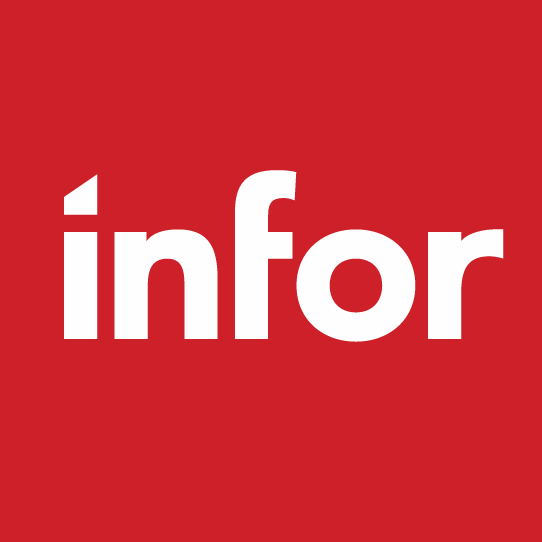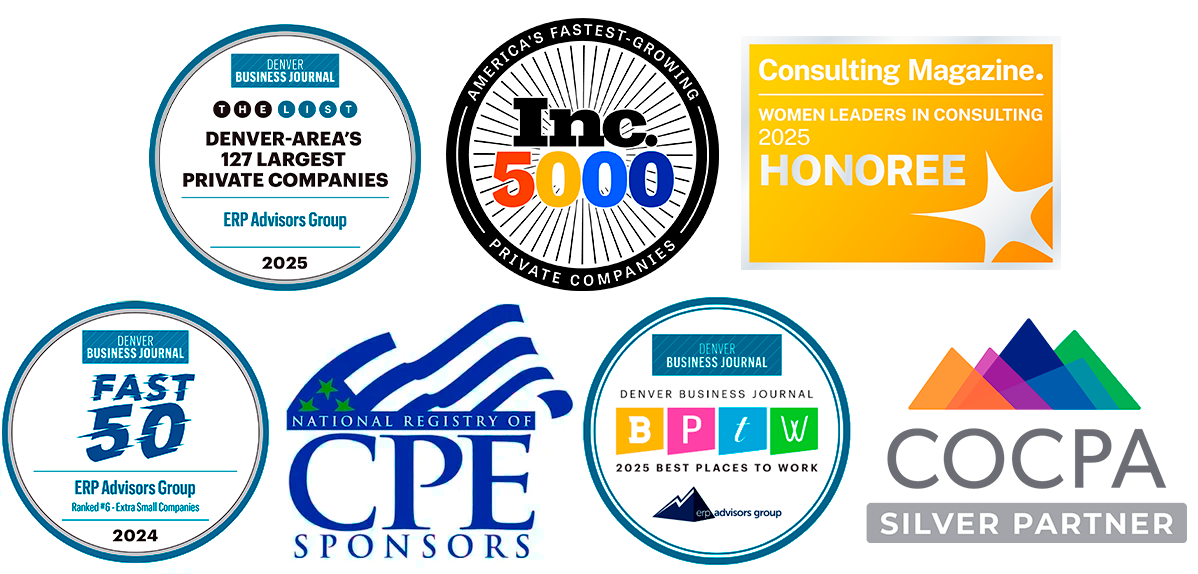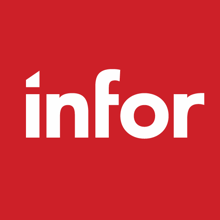
Navigating Infor’s General Product Lifecycle Policy
Infor has a General Product Lifecycle Policy that outlines a generic roadmap for all legacy and on-premises applications offered by Infor. While Infor also provides product-specific roadmaps, the General Product Lifecycle Policy provides definitions for each level of support, or “maintenance”, enabling customers to better understand their support and options for their application's future.
For context, the following products are currently under the General Product Lifecycle Policy:
-
Infor M3
-
Infor SyteLine
-
Infor SX.e
-
Infor Visual
Maintenance Types
Infor software siolutions offer three main tiers of maintenance for all legacy and on-premises applications: Mainstream, Extended, and Sustaining Maintenance. Each tier offers various levels of support, with some standard offerings at each step. Check out the General Product Lifecycle Policy for a full breakdown of Infor maintenance.
Mainstream Maintenance
Mainstream Maintenance is the most robust and complete level of maintenance, offered for every released version of a product for a period of time following the date of the initial release. Infor determines the support period and ultimate end date at its discretion, based upon the particular software release, typically providing customers one year’s notice. Mainstream Maintenance is also the only tier that is certified for use with certain designated middleware, outlined in the specific “Product Lifecycle Policy”.
Under Mainstream Maintenance, a customer can expect to receive:
-
All major releases for the application.
-
Access to the Infor Support Portal for incident submittal, management, and tracking.
-
Access to the Knowledge Base for historical and new content for fixes, ‘how to instruction’, and support briefings.
-
Access to Infor Support Staff.
-
All updates and fixes to emerging and existing problems.
-
Localizations (tax, legal, and regulatory enhancements/updates done at Infor’s discretion).
Extended Maintenance
Extended Maintenance is the next tier of support, sometimes available for particular products and almost always for an additional fee. This additional fee tends to be a 20% increase to the Mainstream Maintenance price. Extended Maintenance is not offered until the expiration of Mainstream Maintenance for a specific product release. Extended Maintenance helps ensure that even if your product is reaching the end of full support, you will still be able to continue operations with little change or disruption.
Extended Maintenance includes many of the same benefits as Mainstream Maintenance but excludes some new major releases and updates or fixes, except for vital fixes classified as “Severity 1” incidents. “Severity 1” incidents are those that could be detrimental to your system. Overall, Extended Maintenance covers:
- New major releases (tentatively offered).
- Access to Infor Support Portal for incident submittal, management, and tracking.
- Access to the Knowledge Base for historical and new content for fixes, ‘how to instruction’, and support briefings.
- Access to Infor Support Staff.
- Updates and fixes for Severity 1 – Critical Only.
Sustaining Maintenance
Sustaining Maintenance is the final tier under Infor’s General Product Lifecycle Policy. Simply put Sustaining Maintenance’s purpose is essentially maintaining legacy software applications. At the expiration of Mainstream Maintenance, products are placed under Sustaining Maintenance, unless the customer elects to pay for support under Extended Maintenance. It is also important to note that Sustaining Maintenance may require an additional fee beyond the initial Mainstream Maintenance contract, but this is done at Infor’s discretion.
Similar to Extended Maintenance, Sustaining Maintenance has many of the perks offered in Mainstream Maintenance but excludes many major supports. Sustaining Maintenance includes:
- New major releases (tentatively offered).
- Access to Infor Support Portal for incident submittal, management, and tracking.
- Access to Knowledge Base for historical and new content for fixes, ‘how to instruction’, and support briefings.
- Access to Infor Support Staff.
- No new updates or fixes, only preexisting ones.
Exceptions, Discrepancies, & Additions
While these general policies apply to all legacy and on-premises applications offered by Infor, each product also comes with a “Product-Specific Lifecycle Policy”. The product policies typically outline the product’s lifecycle stage, major support dates, and, in some cases, exceptions to the general policies. Infor has been careful to note that when there are discrepancies between the reach of general Mainstream, Extended, and Sustaining Maintenance and the support within the product-specific lifecycle policy, customers must always defer to the Product-Specific Lifecycle Policy. Customers and their Infor teams can easily access these policies for reference.
In the age of Cloud ERP, Infor now offers Transitional Support, aimed at assisting customers who are transitioning from an existing on-premises license (often referred to as the “Existing License”) to another on-premises application or a subscription model (in either case, this is referred to as the “New Offering”). Customers transitioning from a preexisting application can access this support once an active subscription or Maintenance agreement for the “New Offering” is in place in order to support the “Existing License” until the migration is complete. Transitional support is offered for a temporary period of up to 18 months and is not offered unless Infor has documented the option within a written agreement with the customer. Check out Infor’s General Product Lifecycle Policy for more information on Transitional Support.
Again, it is vital to note that the maintenance models outlined in the General Product Lifecycle Policy apply only to legacy or on-premises offerings. They do not apply to subscription products or products provided by Infor Consulting Services (ICS), Infor partners, or other third parties.

Why Does This Matter & What is Next
A number of Infor products currently fall along the General Product Lifecycle Policy roadmap and if you are on one of these applications, it is essential to understand the viability of your solution and your options moving forward. Some Infor legacy applications include:
- Infor LN
- Infor M3
- Infor SyteLine
- Infor SX.e
- Infor Visual
Infor has put significant emphasis on moving customers to the cloud in recent years, offering “cloud versions” of their legacy applications and heavily utilizing their data warehouse to reduce the labor associated with a large-scale migration. This is excellent news for legacy customers looking to undergo an upgrade, whether moving to a similar cloud application with Infor or evaluating different solutions available on the market. Do not be afraid to contact your implementation partner or vendor with questions in determining where your product is at in its lifecycle and learn about your options. For an independent review of your business and ERP selection assistance, contact ERP Advisors Group today for a free consultation!

